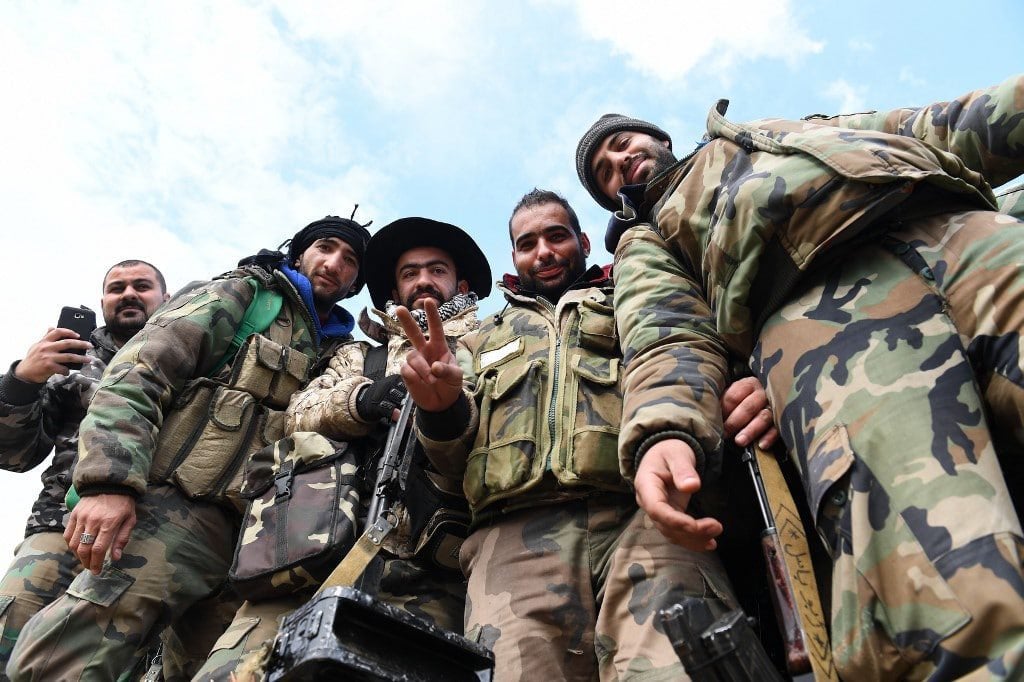
By: Rahaf Aldoughli
When I picture Syria, the first thing I see in my mind’s eye are the statues of the late Syrian president, Hafez al-Assad, in military attire – there’s one in almost every square. But it’s not just statues in the urban spaces, this muscular image of the nation permeates popular culture – Syria is symbolically depicted in songs and stories as a nation of warriors. And, since the uprising in 2011, this link between Syrian masculinity and warrior status has, if anything, intensified.
But the coronavirus has hit all sides very hard. The impact of COVID-19, combined by new sanctions in the shape of the US Caesar Act, which targets overseas sources of income for the Assad regime and its enablers, has brought hostilities to a halt for the time being.
Against this backdrop of economic and political turmoil, the current president, Bashar al-Assad, has had to resort to adopting new strategies to prop up his regime’s finances. This has included chasing his cousin Rami Makhlouf – a regime loyalist – for hundreds of millions of dollars in unpaid back taxes.
Another revenue-raising exercise has been the recent reform of the military service law. This has set a new level of exemption fees – one category for Syrians living abroad and another for Syrians inside the country. So, for the first time, some male residents of Syria – including academics – can evade military service by paying a fee, without having to leave the country.
The new reform has also imposed a charge on people who, for medical reasons, were exempted from the military service – now they have to pay, despite being physically unable to bear arms (we have to say that ‘those who are assigned to service at offices’) This reinforces the link between being an able-bodied Syrian man and serving in the military, while at the same time bringing in more money for the regime’s coffers.
Militarised manhood
In the two Syrian constitutions (1973 and 2012), military service is mandatory for men. The sacred notion of fighting and dying for the nation has been part of the regime’s propaganda imposed on children through the compulsory conscription to Baʾath-affiliated organisations such as the Syrian National Organisation for Childhood (talaʿeʾe) during the primary stage and the Revolutionary Youth Union (al-shabibah) in high school.
In a landmark speech in July 2015, Assad emphasised the relationship between national “belonging” and military service, saying: “The fatherland is not for those who live in it or hold its nationality, but for those who defend and protect it.”
His wife Asma al-Assad reinforced this narrative of masculinity when she met a group of voluntary female soldiers on Mother’s Day in March 2018 and praised them in comparison with men who evaded conscription.
“Your presence in the battlefield marks a new victory and a whole new age… When you are able to sacrifice your soul for the nation, this is the new age and this is the real equality between men and women… You have now proved to the whole world that you are a human being… a human being has strong determination that cannot be defeated.”
Masculinity and post-war Syria
For some men, this this perpetuation of the warrior male stereotype has contributed to an identity crisis. In a recent roundtable discussion with about 50 men who had fled conscription and were living in the UK, many of the men expressed a sense of anguish for failing to defend the nation.
Some concluded that they were not worthy of being Syrian without the honour of carrying arms for their country, while others expressed their desire to go back to die on their home soil. One of them told me: “I feel I have failed my mother… Syria is our mother.”
But the latest reform to Syria’s military service law reflects the regime’s new priorities in fighting COVID-19, which takes money, rather than fighting the regime’s enemies, which takes soldiers.
It’s important to note that the reform targets Syrian men in diaspora and those living in Syria who can afford to pay rather than join up (accepting that some men had always corruptly paid bribes to avoid military service). It’s a shame that the male body is still regarded as either cannon fodder or a source of cash for the country – and it won’t stop men feeling that the constitution, which stipulates that military service is “sacred duty” and pledges to building “physically” as less masculine if they don’t join the armed forces and sign up to protect the nation.
DISCLAIMER
The opinions expressed in this article are those of the writer(s). They do not purport to reflect the opinions or views of Fanack or its Board of Editors.
Remark
This article was originally published by https://theconversation.com/ in November 24, 2020.
![]()


